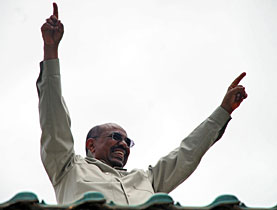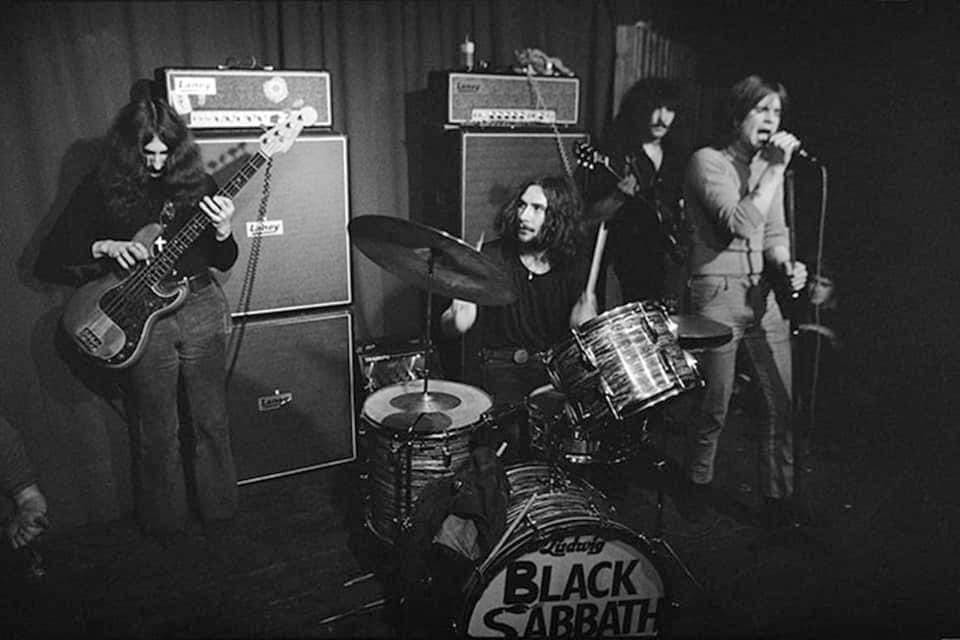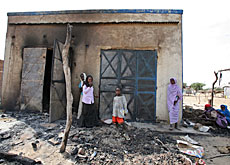
Expert warns of bold but risky genocide charges

The Darfur genocide charges brought against Sudan's president are a bold but hazardous move, says a Geneva-based international law expert.
swissinfo talked to Andrew Clapham, professor at the Graduate Institute of International and Development Studies in Geneva, about the International Criminal Court (ICC) prosecutor’s charges against Sudanese President Omar al-Bashir.
Prosecutor Luis Moreno-Ocampo on Monday asked the ICC for an arrest warrant for Bashir, accusing him of running a campaign of genocide that has killed 35,000 people and forced 2.5 million to flee their homes in Darfur in western Sudan.
Judges at the ICC, an independent body, now have three months to decide if there are reasonable grounds to issue an arrest warrant against Bashir.
The Sudanese parliament on Wednesday condemned Bashir’s indictment, saying it endangered vital peace agreements in Darfur. China, a key investor in Sudan’s oil industry and Khartoum’s biggest arms supplier, has also criticised the move.
Some western countries have called for the ICC’s decisions to be respected.
The United Nations raised security levels in Sudan and told non-essential staff to stay at home as thousands of Sudanese rallied in support of Bashir on Tuesday. Aid agencies say they are monitoring the situation but plan to continue their operations.
swissinfo: This is the first time that the prosecutor has made charges against a sitting head of state. What is your view on such an unprecedented decision?
Andrew Clapham: It’s certainly a bold move but it also has some risks. The fact that Bashir is a sitting head of state doesn’t mean he has any kind of immunity. The statute of the ICC makes it clear in article 27 that a head of state can be tried, but by bringing this case against Bashir implies that the government and the state as a whole is responsible. As the accusation is genocide, that is quite dramatic.
I haven’t seen the evidence, so I can’t judge what he’s got, but genocide is notoriously difficult to prove on the facts, as you have to show an actual intention to destroy a group in whole or in part.
And there is some concern among some of the international lawyers following this case that by charging genocide you get everyone’s attention, but you also disappoint victims and you look as though you went over the top if the court eventually finds that there is not enough evidence on genocide. But it’s hard to say. It’s quite a high-risk strategy.
swissinfo: If the ICC decides to issue an arrest warrant, what are the chances of Bashir actually being arrested?
A.C.: In the current circumstances, probably very slim, unless he chooses to travel abroad or if there were a turn of events in Sudan.
But the case is also about putting the facts on the record rather than necessarily seeking an immediate result in terms of the president appearing before the court.
swissinfo: What impact will the indictment have on the peace process and aid operation in Darfur?
A.C.: It’s very difficult to predict what effect this would have on the peace process.
Some commentators have pointed out that when former Yugoslav president Slobodan Milosevic and Charles Taylor, ex-president of Liberia, were similarly accused of international crimes before an international court, that helped delegitimize them.
But there is a real concern that the indictment could pose a significant additional risk to the aid operation and the prosecutor seems to be aware of this. I’m not sure what the international community could and should do to ensure the aid workers are not seen as somehow caught up in this judicial process and to guarantee their immediate safety.
It’s a problem that occurs every time you want to have accountability in the midst of an ongoing humanitarian or armed conflict crisis.
swissinfo: Some critics say the ICC is a “toothless tiger” making little progress to date in its other cases in Uganda, Congo and the Central African Republic, and is unlikely to do any better in Sudan. What is your opinion?
A.C.: There is a big distinction between the court’s action vis-à-vis Sudan and concerning those other countries. The situation in Sudan, or more specifically Darfur, was referred to the court by the UN Security Council and that fundamentally changes the expectations in the international community about cooperation with the court regarding anything it wants to do over Sudan.
Here, the obligation is wider and arguably higher or stronger. Should the Security Council start to issue binding decisions calling on states to cooperate, for example, with the arrest of the president of Sudan, then every state in the world would be obliged under the UN charter to cooperate with the court.
swissinfo-interview: Simon Bradley
Just over five years since war broke out in Darfur, the situation remains grim. Peace talks have failed to get off the ground, only 9,000 of the 26,000-strong hybrid United Nations-African Union peacekeeping mission have been deployed and two-thirds of the region’s population are dependent on the world’s largest aid operation.
The conflict, which has claimed over 200,000 lives and displaced 2.5 million people in Sudan and 400,000 into Chad, has become more complex and seems to have entered a new phase.
In June UN organisations warned that conditions were poised to deteriorate rapidly in Darfur. UN humanitarian coordinator Mike McDonough described a “perfect storm” of threatening developments: growing violence, overcrowding in refugee camps and a bad harvest.
In February 2007 the ICC indicted two Sudanese officials for war crimes relating to Darfur. Yet Sudan says the ICC has no jurisdiction and refuses to hand over the suspects.
Luis Moreno-Ocampo, the prosecutor of the International Criminal Court (ICC), has accused Sudanese President Omar Hassan al-Bashir of genocide, crimes against humanity and war crimes in Darfur.
In support of the controversial genocide charge, the prosecutor claims to have evidence to show that Bashir “masterminded and implemented” a plan to destroy three Darfuri tribes, the Fur, Masalit and Zaghawa, “on account of their ethnicity”.
His argument is that Bashir controls government and government proxy forces in Darfur, and the assaults on the tribes and the destruction of their villages could not have continued for several years without his explicit orders.
The ICC, based in The Hague, was set up in 2002 as the world’s first permanent war crimes court.

In compliance with the JTI standards
More: SWI swissinfo.ch certified by the Journalism Trust Initiative







































You can find an overview of ongoing debates with our journalists here . Please join us!
If you want to start a conversation about a topic raised in this article or want to report factual errors, email us at english@swissinfo.ch.